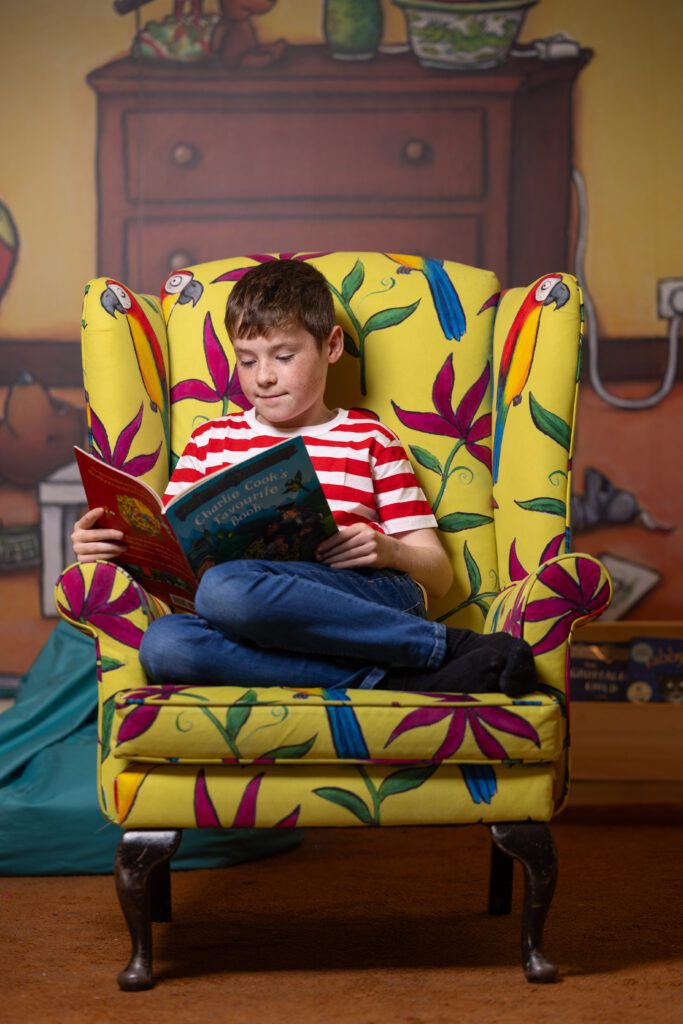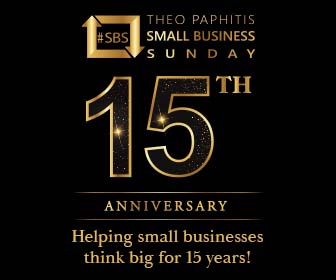Ahead of the world premiere of the new musical, puppet filled stage adaptation of Julia Donaldson and Axel Scheffler’s Charlie Cook’s Favourite Book we had the pleasure of speaking with Samantha Lane Artistic Director of Islington’s award-winning Little Angel Theatre.
“I think that the most important thing is that you enjoy what you are doing. Without passion, there will be no drive. And without drive, it is impossible to succeed”.
Samantha begins by explaining how she co-adapted the book with Barb Jungr. Having worked together to take the book – “which takes about 4 minutes to read – from page to stage, turning into a 50 minute show. The book is basically a series of books within a book – 11 in total – and so we wanted to give the story a stronger narrative arc”. Lane and Jungr in adapting Charlie Cook’s Favourite Book, brought to life an additional character called Izzy, who is Charlie’s sister. Lane explains that unlike Charlie, Izzy isn’t keen on reading – she finds it boring. But, through play, with Charlie and Mum, Izzy finds a book that she loves. Their adaptation a celebration of both the joy of reading and the joy of playing.

As well as co-adapting, Samantha is also lead director for the show. She highlights how it was her responsibility to ensure that the words from the script, and the songs, were brought to life. With a super talented cast (Freya Stephenson, Pierre Hanson-Johnston and Georgie Samuels) and incredible Stage Manager (Olivia Presto), a wonderful set (by Ellie Mills), gorgeous puppets (by Maia Kirkman Richards) and fabulous lighting (by Sherry Coenen) – the team have all worked together to get the show on its feet. For Lane, it is what she loves most about her job – being in a room and collaborating with brilliant people.
Finding Inspiration in the Performing Arts
Samantha recalls how she did not grow up watching theatre. Aside from a single trip to panto when she was about five – where her lasting memory was her dad having to take her sister out because she was terrified of the wicked witch – Lane did not encounter any theatre until the age of 13. Having been blown away by the talents of a few actors within the production Too Much Punch for Judy, she knew from that point on, she wanted to work in theatre. This lead her to university where she studied Theatre, opening her eyes to multiple forms and styles of theatre.
Samantha recalls how she was originally taught to believe that stem subjects trumped the arts. So much so that she was dissuaded from taking both theatre studies and art A-level because “apparently” good universities would not take her with two arts subjects.
“It turns out that the head was completely wrong, but if that teacher had not encouraged me to do a little bit of research, I may well have ended up dropping another subject that I loved”.
 Whilst Lane excelled at school, university, and has both a PGCE and a Masters credited to her name. She is honest about not knowing whether these qualifications have helped her to get to where she is today.
Whilst Lane excelled at school, university, and has both a PGCE and a Masters credited to her name. She is honest about not knowing whether these qualifications have helped her to get to where she is today.
“With my first job out of university, it was about the experience that I had gained in drama facilitation outside of the course that got me the job, rather than the degree itself. Equally – I got my first teaching job in a state secondary school without having a PGCE (I later trained on the job). And I didn’t do my masters until I was working in quite a senior position at the Almeida Theatre!”
Samantha recalls her first job in a theatre, after three years of teaching, was at the Queens Theatre in Hornchurch as Education and Outreach Manager. In this role, she had the opportunity to direct two large-scale musicals – Frank Sinatra, Tom Jones and Me and The Path of the Brave, with community casts of over 70 people, aged from 5 to 75.
She admits to having spent a long time at university being a bit snobbish about musicals – even though they were huge part of her early theatre experiences – but these shows made Lane remember just how much she loved them; and, whilst not everything that she has produced or directed since has not necessarily been a musical, Lane is definite in her love for making musicals. Samantha points out that she is less keen on naturalistic theatre and prefer theatre that is more experimental, utilising innate theatricality and the imagination.
“This concept underpins all of my work – but especially Charlie Cook. Through play, and using dress-up and objects in the Cook’s living room, enhanced by sounds and lights and using dance and song, Charlie and Izzy bring each book in the story to life. They become the characters and play each narrative out. It is a show of make-believe”.
Lane opens up about being strongly influenced by the theories of Frederick Froebel. A German pedagogue who laid the foundation for modern education based on the recognition that children have unique needs and capabilities. With the belief that play was the principle means of learning in early childhood, because, in play, children construct their understanding of the world through direct experience with it.
Favourite Moments with Charlie Cook’s Favourite Book
For the director, it is very hard to pin-point a specific moment. Lane explains how it has been a rehearsal period full of play and discovery, so no one particular moment stands out above others. “It’s such a joy to work with open and playful performers. We started the rehearsal period with a game of ‘Yes and…‘ (a game where you are basically asked to take an offer and role with it). The Charlie Cook cast have totally embraced this ethos throughout the rehearsal period, offering and accepting ideas from me, and from each other, in such a gracious and accepting way – which has helped us to collectively shape a really special show”.
The most challenging part of Lane’s role has not been defined by adapting or directing the show. Instead, the fact that she is the Artistic Director at Little Angel Theatre, which involves juggling her commitments alongside rehearsing. She admits that whilst tricky when juggling so many things to fully focus on any of them 100% – that is just the nature of the job – and so she has consequently learnt to work quickly and prioritise appropriately.
Samantha does not believe it is productive to divide roles between creative ones and the administrative duties. She goes onto highlight that in her view everybody has the potential to be creative and some of the best administrators she knows are also some of the most creative people.
“We are an organisation that has seen incredible growth over the last 8 years, and that comes from being creative – and having a creative workforce who are willing to be bold, take risks and learn from them, adapt to change, and continue to push forward even when the going gets tough”.
For those looking to follow in Samantha Lane’s footsteps, she believes the best makers are also avid consumers. She highlights the importance of being able to network. The industry landscape is shifting, but connections are important. It’s hard – but not impossible. Having had to to forge her own career path – the connections she has made along the way have been pivotal. She points out that once those connections are formed, find your go-to-people. Those who have your backs and support you, and vice versa. The theatre industry can be hard work, but when the going gets tough Lane know’s she has a great group of brilliant, creative people to lean on. At the same time she believes it is important, and healthy, to find a way to strike a balance between work and personal life.





